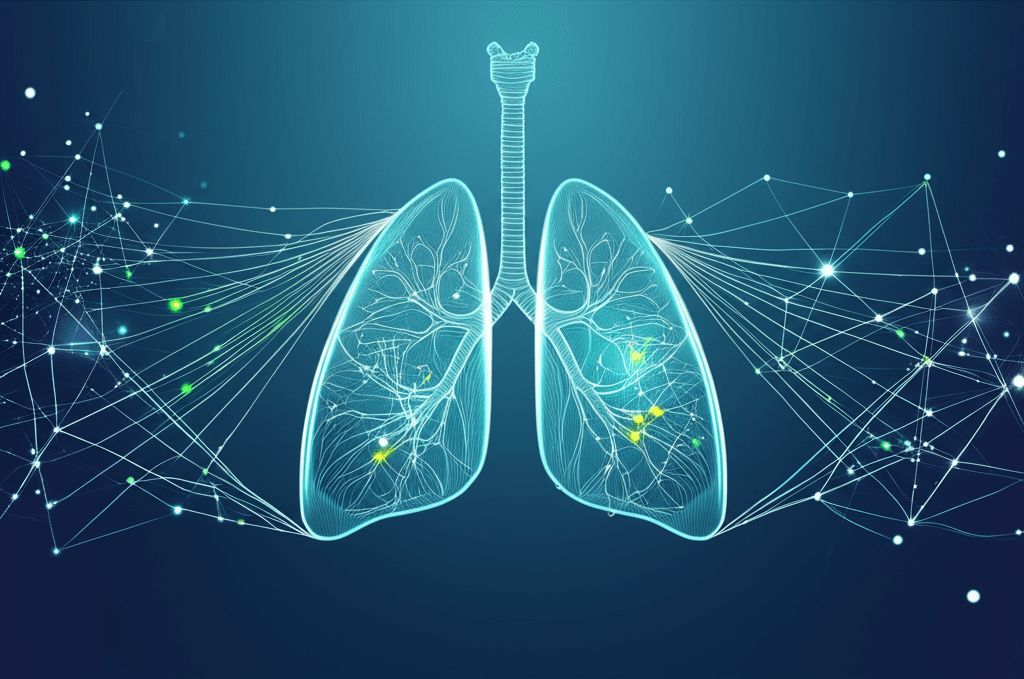Goa pioneers AI for early lung cancer detection in public health
Goa harnesses AI for widespread lung cancer screening, transforming public health with earlier detection and faster, better patient outcomes.
August 14, 2025

In a significant stride towards leveraging artificial intelligence for public health, the Indian state of Goa has embarked on a pioneering initiative to detect lung cancer at its earliest stages. Since early 2024, the state's public healthcare system has integrated Qure.ai's qXR, an AI-powered chest X-ray interpretation tool, across its network of government hospitals and primary health centers. This strategic partnership, involving the Government of Goa, health-tech firm Qure.ai, and pharmaceutical giant AstraZeneca, represents a landmark effort in using advanced technology to tackle one of the leading causes of cancer-related deaths and sets a precedent for AI's role in transforming public health infrastructure in India. The program has already demonstrated measurable success by screening tens of thousands of individuals and identifying cancers that might have otherwise been missed, showcasing a potent model for public-private collaboration in the healthcare sector.
The core challenge this initiative addresses is the high mortality rate associated with lung cancer, often due to late-stage diagnosis. In Goa, which sees approximately 1,400 to 1,500 new cancer cases annually, early detection is critical to improving patient outcomes and survival rates.[1][2] Traditionally, 100 to 200 lung cancer cases would be detected over a two-year period, often when the disease is already advanced.[3] Recognizing this critical gap, Goa has positioned itself as a leader in comprehensive cancer care, aiming to make it a key focus of its health policy.[4][5] The collaboration is part of AstraZeneca's 'Lung Ambition Alliance,' a global coalition dedicated to eliminating lung cancer as a cause of death.[1][6] By integrating AI into the initial screening process, the state aims to find lung nodules—potential precursors to cancer—incidentally, even when patients visit health centers for unrelated complaints, thereby creating a new and vital pathway for early intervention.[3][4]
At the heart of this public health transformation is Qure.ai's qXR technology. This sophisticated AI software is designed to analyze chest X-ray images in under a minute, detecting and localizing over 30 different abnormalities, including the small pulmonary nodules that can indicate early-stage lung cancer.[6] The AI acts as a pre-read assistant for radiologists and physicians, flagging suspicious X-rays and prioritizing them for further review.[6] This capability is crucial in a public health setting where the volume of X-rays can be high and the availability of specialist radiologists may be limited. The system is integrated directly into the existing digital X-ray network across 17 to 18 government health facilities in Goa, making it a seamless addition to the current workflow.[3][7][8] This approach demonstrates that digital transformation in healthcare can begin with targeted AI solutions rather than waiting for a complete overhaul of existing infrastructure, a key insight for other regions facing similar challenges.[7] The qXR tool essentially casts a wider net, ensuring that every chest X-ray becomes an opportunity for opportunistic lung cancer screening.
The implementation of this AI-driven screening program since February 2024 has yielded impressive results and established a comprehensive end-to-end pathway for patients.[3][7] As of August 2025, over 75,000 chest X-rays had been screened through the system.[3] This extensive screening led to the detection of more than 6,000 pulmonary nodules and the identification of over 500 individuals at high risk for lung cancer.[3][8] Crucially, the program has already resulted in the confirmed diagnosis of five lung cancer cases that may have otherwise gone undetected until later, more critical stages.[3] To manage these findings, a robust referral system has been established. High-risk patients are given a "pink slip" to ensure they are fast-tracked for further investigation, such as CT scans and biopsies.[3] This has dramatically reduced the wait time for a CT scan for these patients from ten days to just two.[3] The program also incorporates Nurse Navigators who support high-risk patients throughout their journey from screening to diagnosis, ensuring they adhere to follow-up appointments and receive the necessary clinical interventions.[9] Following its initial success, the partnership was extended for another two years in March 2025, with plans to expand screening efforts and enhance training for healthcare workers.[9]
The Goa initiative carries profound implications for the future of healthcare in India and the broader AI industry. It serves as a powerful case study for how public-private partnerships can successfully deploy cutting-edge technology to address significant health challenges at scale.[8] The state's Health Minister, Vishwajit Rane, has emphasized that this collaboration reinforces Goa's commitment to preventive healthcare and enhancing its public health system.[9] Furthermore, this program has catalyzed other progressive health policies. The government announced the implementation of a Pricing Policy for Innovative Lifesaving Therapies (PPILT), which will begin with lung cancer treatments.[7][8] This policy allows the state to enter into confidential, outcome-linked agreements with pharmaceutical companies to procure advanced therapies at significantly reduced costs, addressing the financial barrier to accessing innovative medicines that can cost upwards of 50 lakh rupees annually.[8] By embedding AI into its foundational healthcare services, Goa is not only improving early cancer detection but also creating a data-rich environment that can inform future health strategies and policies, ultimately building a more resilient and equitable healthcare system.[8][1] This model of integrating AI for mass screening, backed by strong patient navigation and affordable treatment pathways, offers a blueprint for other Indian states and developing nations to follow.